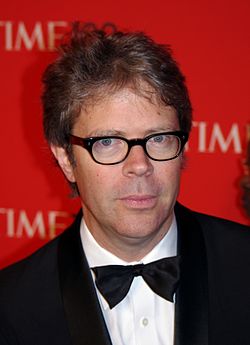Jonathan Franzen Quote
Earlier in the day, while killing some hours by circling in blue ballpoint ink every uppercase M in the front section of a month-old New York Times, Chip had concluded that he was behaving like a depressed person. Now, as his telephone began to ring, it occurred to him that a depressed person ought to continue staring at the TV and ignore the ringing — ought to light another cigarette and, with no trace of emotional affect, watch another cartoon while his machine took whoever’s message. That his impulse, instead, was to jump to his feet and answer the phone — that he could so casually betray the arduous wasting of a day — cast doubt on the authenticity of his suffering. He felt as if he lacked the ability to lose all volition and connection with reality the way depressed people did in books and movies. It seemed to him, as he silenced the TV and hurried into his kitchen, that he was failing even at the miserable task of falling properly apart.
Earlier in the day, while killing some hours by circling in blue ballpoint ink every uppercase M in the front section of a month-old New York Times, Chip had concluded that he was behaving like a depressed person. Now, as his telephone began to ring, it occurred to him that a depressed person ought to continue staring at the TV and ignore the ringing — ought to light another cigarette and, with no trace of emotional affect, watch another cartoon while his machine took whoever’s message. That his impulse, instead, was to jump to his feet and answer the phone — that he could so casually betray the arduous wasting of a day — cast doubt on the authenticity of his suffering. He felt as if he lacked the ability to lose all volition and connection with reality the way depressed people did in books and movies. It seemed to him, as he silenced the TV and hurried into his kitchen, that he was failing even at the miserable task of falling properly apart.
Related Quotes
About Jonathan Franzen
Franzen has contributed to The New Yorker magazine since 1994. His 1996 Harper's essay "Perchance to Dream" bemoaned the state of contemporary literature. Oprah Winfrey's book club selection in 2001 of The Corrections led to a much publicized feud with the talk show host.
